Ask Ethan # 102: Is everything in the universe the same age?
There is no absolute time, but after 13.8 billion years, are there relative differences?
The total number of people who understand relativistic time, even after eighty years since the advent of the special theory of relativity, is still much less than the number of people who believe in horoscopes.
- Yuval Neeman
13.8 billion years have passed since the Big Bang, which we are able to confirm with the help of various evidence . But this time has passed for us - and since it is relative, what does this mean for observers in other parts of the Universe? After reviewing your questions, I chose one of them, from Rafael Bernal:
If time is relative, is there an absolute time for the entire universe? When we say that the universe is already 13.8 billion years old, is this true only for the earth, or for the whole universe?
Our Earth exists in our Galaxy, and the age of everything we see in it is the same 13.8 billion years. Almost.
')
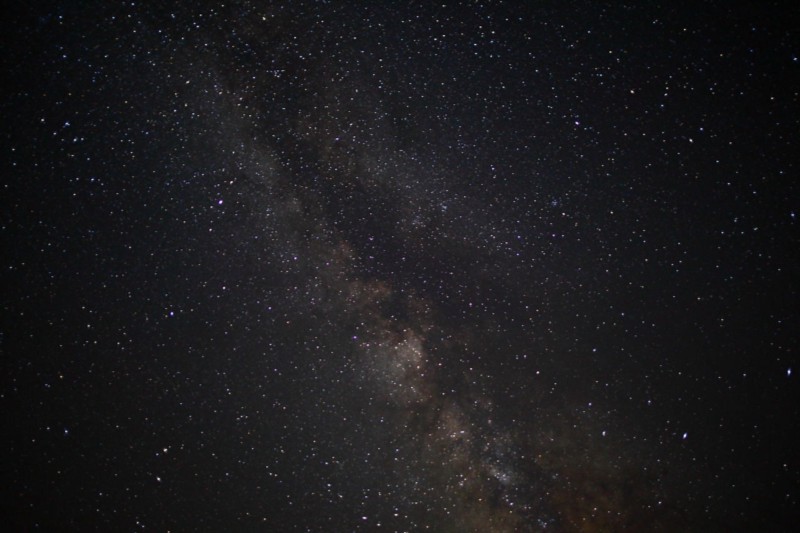
The age of the planets, stars and other sources of light visible in the night sky does not coincide with ours. Since the speed of light is finite, if we look at a star that is 100 light years away from us, we will see it as it was 100 years ago, and not as it is today. If you compare this with 13.8 billion years old - and even if you take a star located on the other side of the galaxy 100,000 light years - this difference will be insignificant. The difference between 13.8 billion and 13.799.9 million years is not so big.
But if we consider other galaxies - very distant, then it will be a completely different story.
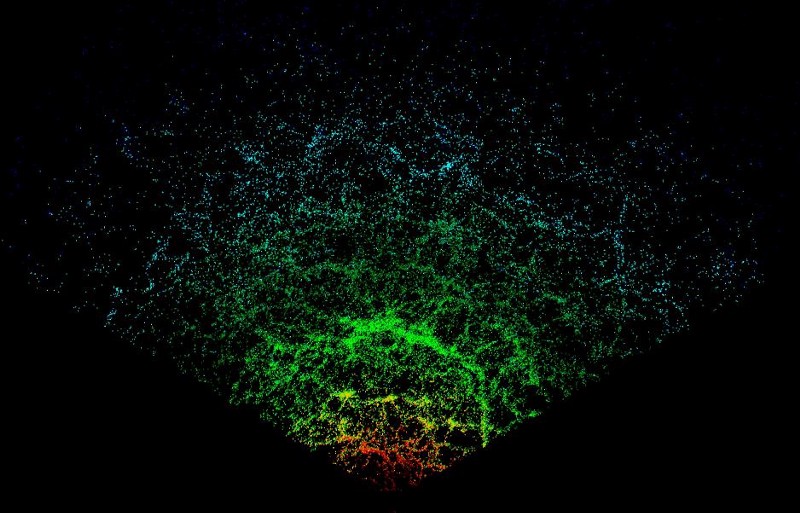
Each point in this picture is a separate galaxy. The green filaments are known as the Great Wall of Sloane , about a billion light years from Earth. The galaxies in this structure are 12.8 billion years old, and the most distant galaxies in the picture are even younger.
Looking farther, we find the galaxies that existed when the universe was less than a billion years old, when its age was only a few percent of today.
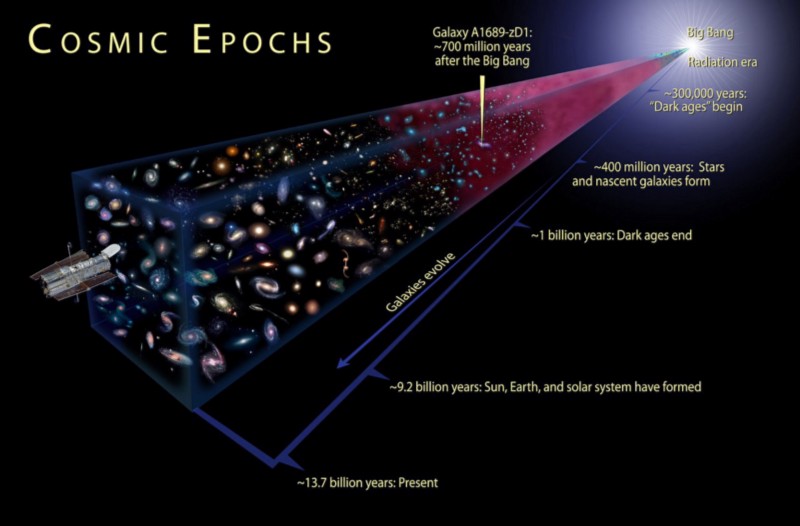
If we had powerful enough telescopes, we could see individual stars with a very low content of heavy elements, since more than 99% of the atoms at that time were only hydrogen and helium resulting from the Big Bang. There would be almost no carbon, oxygen, silicon, phosphorus, iron, and so on.
Therefore, they would practically have no stony planets, organic molecules, and a chance for the existence of life. Looking at the galaxies in their early, original state, we literally look into the past.
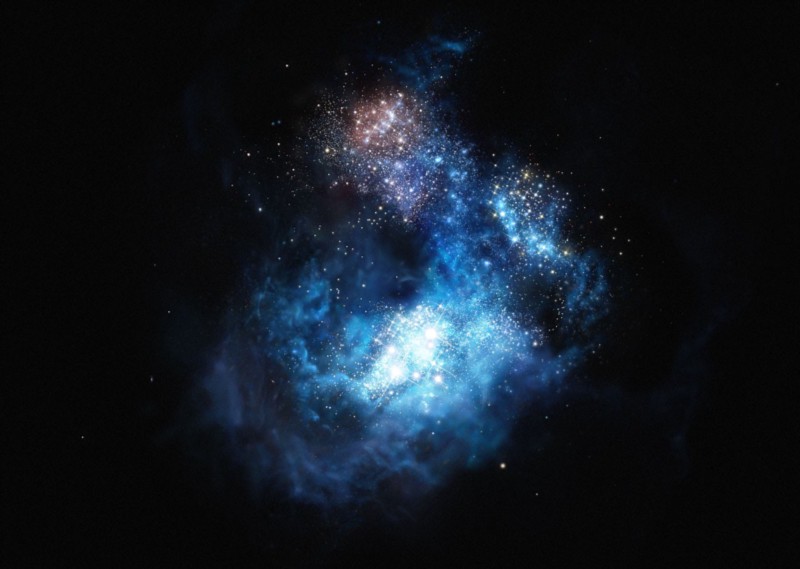
But there is an important point! We do not look at the galaxies, what they are today, but we see them from our point of view, looking into the past!
For someone on a distant star, in a distant galaxy or tens of billions of light years from us, our past would be visible. For someone in 100 light years on Earth there would be no signs of nuclear bombs, we would not invent computer, television broadcasting, and even tube amplifiers. For someone from a billion-year-old galaxy, our Sun would seem younger and darker, there would be only single-celled organisms on Earth, no distinguishable plants or animals, and the continents of our planet would be bare, covered only with ice and mud.
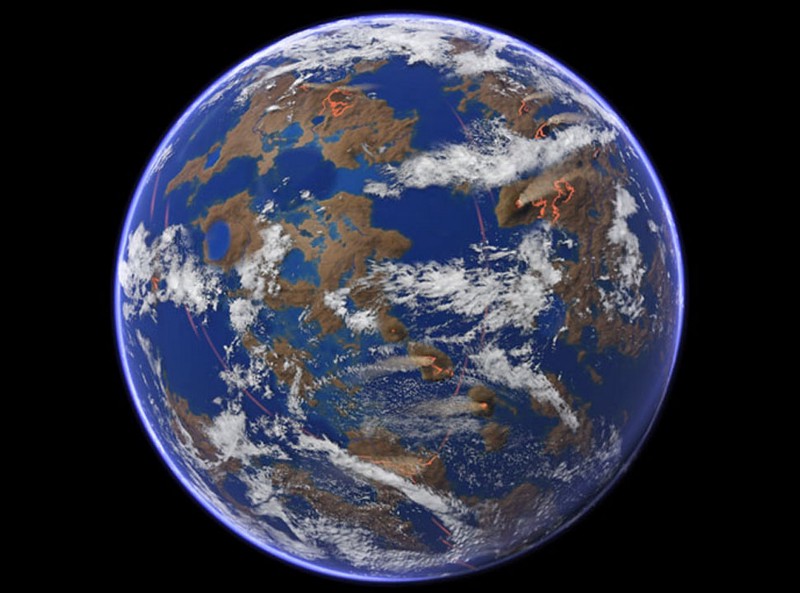
What is even more frightening - for observing the substance that should turn into us, from the most distant visible galaxies, not only would our Earth and the Sun not exist, but in general our Galaxy. We would be a set of small gas clouds and proto-galaxies, which have yet to unite into the spiral structures from which our house will be born. There would be the most ancient globular clusters that can now be found in the halo of our galaxy, and they would be full of hot, young, blue stars that had already disappeared a billion years ago.
Any of these observers, on another star, in another galaxy, or in another end of the universe, would see a universe very similar to ours:
• The universe is 13.8 billion years old.
• A universe in which observations in all directions would look into the past.
• The Universe, in which the CMB is cooled to 2.725 K.
• A universe in which a great cosmic network would be indistinguishable from what we see.
• The Universe, in which, having looked at us, they would see us in the past as far as we see them.
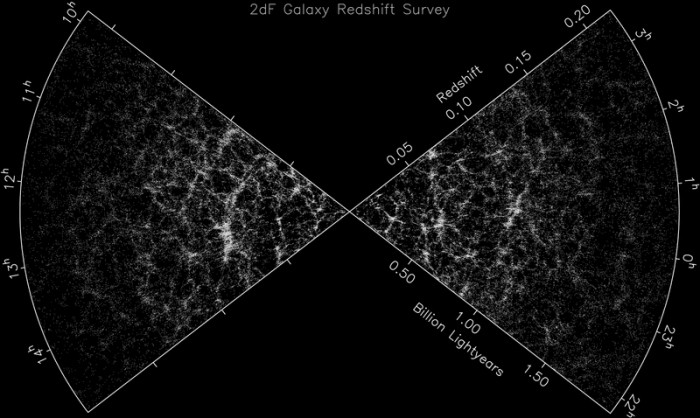
Does it not look like in some sense that there is some form of absolute time?
So it may seem, but in fact it is not! Indeed, the Big Bang happened everywhere at the same time 13.8 billion years ago, and this will be true from the point of view of any galaxy. But what if there were galaxies moving at speeds not at hundreds or thousands of kilometers per second relative to the background radiation coordinate system, but at hundreds of thousands of kilometers per second, very close to the speed of light?
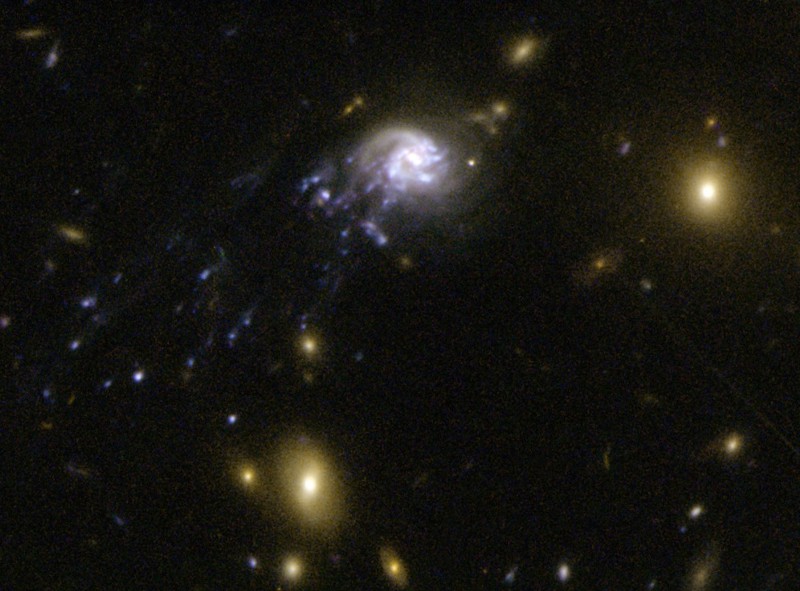
Just as time goes differently for anyone who moves close to the speed of light on Earth — for a particle, train, or person — if there was a planet, a star, or a galaxy long moving close to the speed of light, it would be much younger. the rest of the universe!
Imagine that when the universe was only a billion years old, the galaxy accelerated due to a series of gravitational interactions, up to 99% of the speed of light. Over 12.8 billion years since that time, only 1.8 billion years would have passed for this galaxy. Compared with the known galaxies, it would be smaller, bluer and less overgrown.
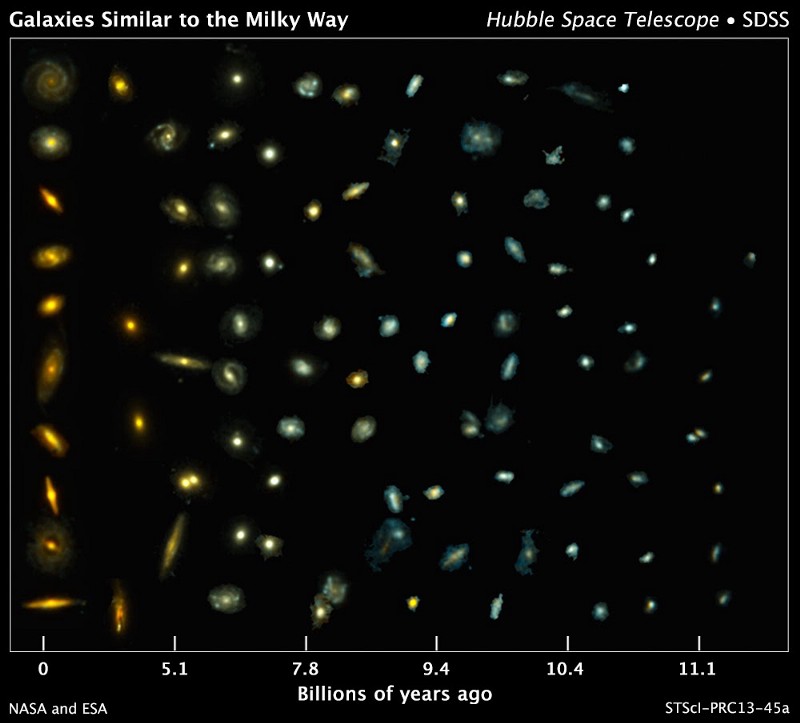
Therefore, the Universe should look the same for all observers, the same amount of time should pass everywhere, and the Universe should have the same large-scale properties almost everywhere. But for some selected observers who have spent considerable time at a speed close to the speed of light relative to the background radiation reference system - the Universe would be very strange. At that moment, when they would slow down relative to RI and stop, they would find themselves, young, in a strange way of the old Universe.
The fact that 13.8 billion years have passed since the Big Bang is applicable to everyone and everything in the observable Universe, but if you move at a speed close to light speed, it will be difficult for you to believe in it!
Source: https://habr.com/ru/post/369833/
All Articles